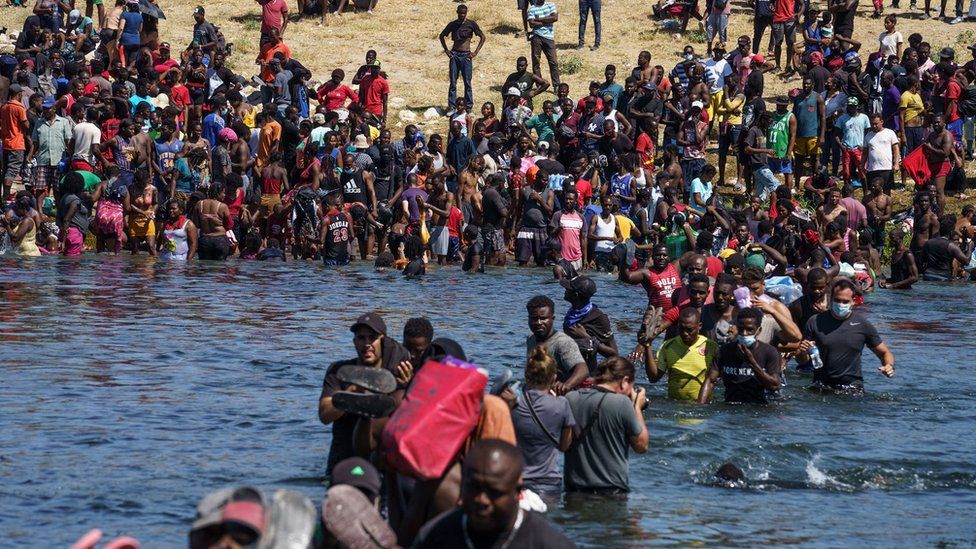
Haiti is a ticking time bomb. In the last few months, the nation has faced multiple overlapping crises that have left its people dismantled and desperate. Following the assassination of their President, Jovenel Moise, in July, Haitians have faced a devasting earthquake and several flash floods that have claimed 2,000 lives and left many more injured or displaced. The natural disasters have also worsened the conditions of the country’s already immense levels of poverty, hunger, and violence.
What would seem like the ideal time to look towards government leadership for guidance, Haitians have turned the other way. “There is nothing that has ever worked well under any president I have known,” said Luckner Augustin, a 27-year-old handyman in Port-au-Prince who was interviewed by The New York Times. “They only care about stuffing their pockets with money.” Haitians have long felt neglected by their government and have learned not to depend on their bureaucratic leaders. In Haiti, it is truly every man for himself. The New York Times reports, “The daily concerns for most are simple: finding their next meal tops the list, many said. Then there is the matter of trying to navigate the violent streets, where kidnapping is a constant risk even for small children. Power, water service and fuel are sporadic; parts of the city have been made impassable by gang warfare”. The Haitian government has lost the trust of its people. Even the ongoing political crisis has garnered little public attention, other than by political factions seeking power from the huge hole left behind by late President Moise.
The Haitian government is essentially a modern-day aristocracy: the majority of Haitians live in poverty and a small class of elites hold power in the government. “The country is in the hands of a small group of people,” said Jean Remy Saint-Clair, a 65-year-old construction worker in Port-au-Prince who was also interviewed by The NY Times. “A small clique lives well while the rest lives in misery”. The Haitian people no longer believe in the government to help them. People are too worried about surviving to focus on the inner power struggle of the elites who put more effort into self-preservation and gaining wealth than they have into caring for their constituents.
Political tensions have worked their way into the investigation of the assassination of President Moise, which is nothing short of a mess. According to various media sources, there has been no prosecution because the investigative reports are influenced by political agendas and thus conflict one another. Earlier this month, Ariel Henry – the Haitian Prime Minister – was called to questioning by Haiti’s Chief Prosecutor, Bed-Ford Claude. Just a few days later, Henry – who claims he is innocent – ordered for the Chief Prosecutor and the Justice Minister – his prior superior – to be dismissed of their titles. However, somehow Claude issued an order against Henry the very next day forcing him to stay in the country as the investigation proceeds since there is strong evidence connecting Henry to the assassination. Specifically, Claude presented telephone records showing Henry conversing with a top suspect in the assassination. Although it is important and incriminating evidence, technically Claude had no authority to present it since he was taken off the case and dismissed from his position by Henry. There are several questions about this investigation, including why was Henry even calling shots when he is a suspect in the assassination plot. Throughout this confusion, another problem emerged on the very same day: Joseph Lambert, the head of the Senate, tried to have himself appointed to be the new President of Haiti. His effort did not last long as gunfire erupted around Parliament in the capitol and other nations – including the United States – opposed his ascension. Since then, smaller political demonstrations have taken place around the city causing turmoil and leaving the rest of Haiti more frustrated than ever as they lack the political leadership to help them through the natural disasters, poverty, and violence that have plagued their people.
Haiti has experienced increasing societal instability since the devastating earthquake of 2010. The latest natural disasters and uptick in violence has hurt the economy even more and the Haitian people have lost faith in their government to do anything about it. The ruling class has proven to be more worried about self preservation, power, and money than the condition of their people. As a result, the US-Mexico border has recently seen a drastic rise in Haitian migrants seeking asylum – a better life. The ground in Haiti is unstable – literally and figuratively – the people have lost hope, and they are looking for a new home. Haiti is imploding from the inside, and regardless of how much international aid they receive, it is clear that in order for long-term progress to occur, it must begin with the Haitian Government itself.

